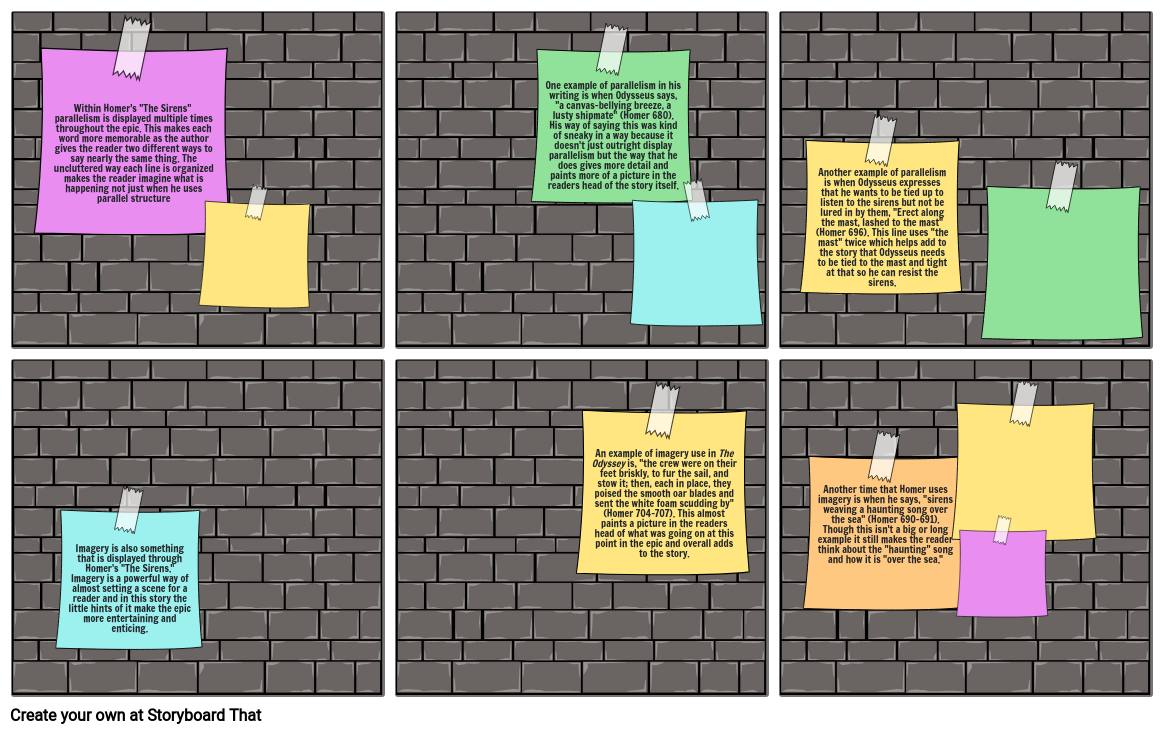Literary Devices

Texto del Guión Gráfico
- Within Homer's "The Sirens" parallelism is displayed multiple times throughout the epic. This makes each word more memorable as the author gives the reader two different ways to say nearly the same thing. The uncluttered way each line is organized makes the reader imagine what is happening not just when he uses parallel structure
-
- One example of parallelism in his writing is when Odysseus says, "a canvas-bellying breeze, a lusty shipmate" (Homer 680). His way of saying this was kind of sneaky in a way because it doesn't just outright display parallelism but the way that he does gives more detail and paints more of a picture in the readers head of the story itself.
-
- Another example of parallelism is when Odysseus expresses that he wants to be tied up to listen to the sirens but not be lured in by them, "Erect along the mast, lashed to the mast" (Homer 696). This line uses "the mast" twice which helps add to the story that Odysseus needs to be tied to the mast and tight at that so he can resist the sirens.
-
- Imagery is also something that is displayed through Homer's "The Sirens." Imagery is a powerful way of almost setting a scene for a reader and in this story the little hints of it make the epic more entertaining and enticing.
- An example of imagery use in The Odyssey is, "the crew were on their feet briskly, to fur the sail, and stow it; then, each in place, they poised the smooth oar blades and sent the white foam scudding by" (Homer 704-707). This almost paints a picture in the readers head of what was going on at this point in the epic and overall adds to the story.
- Another time that Homer uses imagery is when he says, "sirens weaving a haunting song over the sea" (Homer 690-691). Though this isn't a big or long example it still makes the reader think about the "haunting" song and how it is "over the sea."
-
-
Más de 30 millones de guiones gráficos creados
¡Sin Descargas, sin Tarjeta de Crédito y sin Necesidad de Iniciar Sesión Para Probar!

